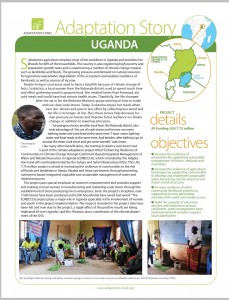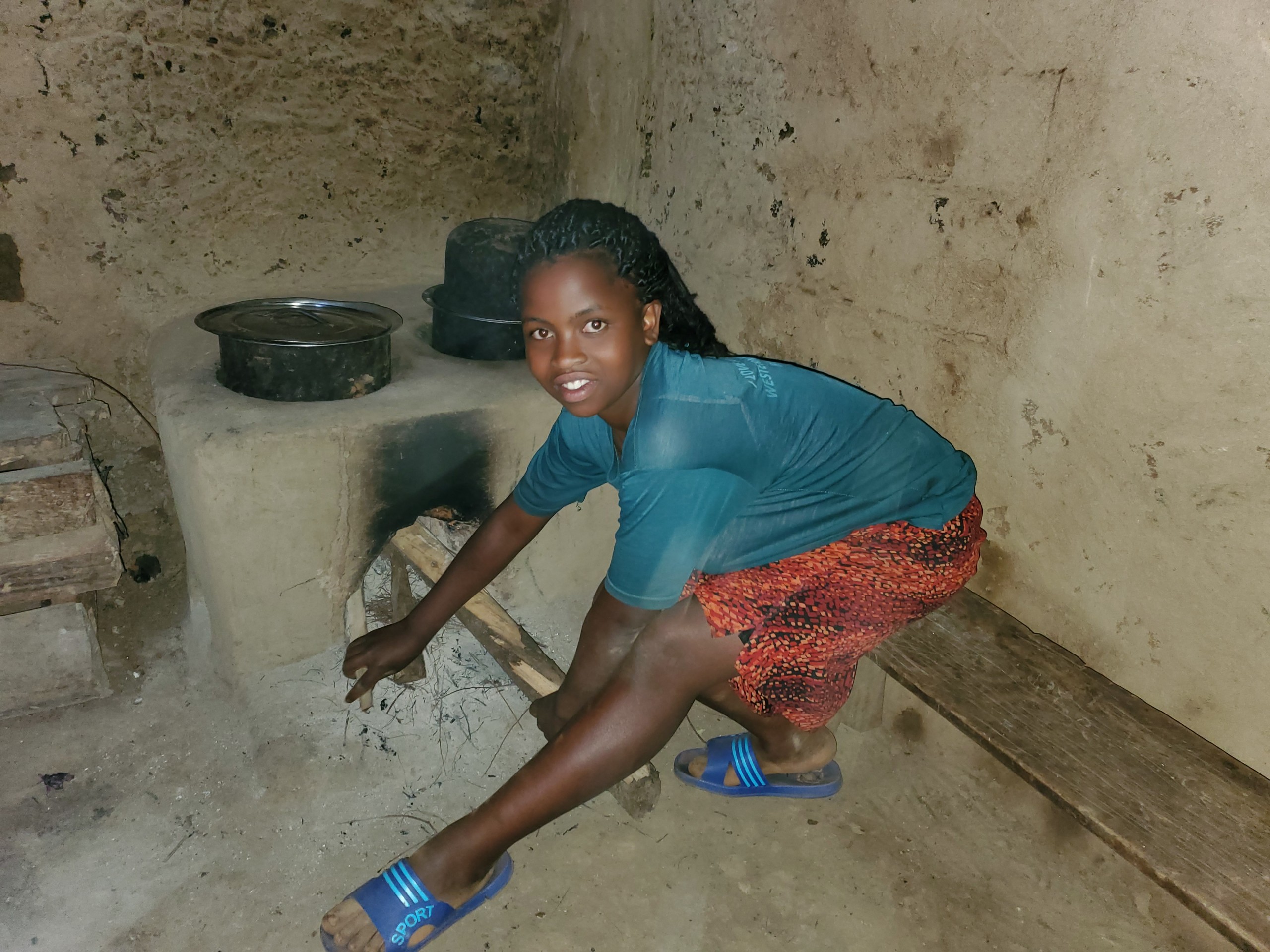A girl is using a Rocket Lorena Stove which has an efficient conversion chamber that saves up to 50 – 60% of firewood compared to 3 stone fireplace. Maziba catchment, Uganda. (Photo by OSS)
Project Story: Adaptation Fund in Uganda
Subsistence agriculture employs most of the workforce in Uganda and provides livelihood for 68% of the households. The country is also registering high poverty and population growth rates and is experiencing a number of climate change impacts such as landslides and floods. The growing pressure and demand on natural resources for agriculture exacerbates degradation of the ecosystem and weakens resilience of farmlands, as well as sources of income.
People living in rural areas used to have a hard life because of climate change effects. Scolastica, a local woman from the Rubanda district used to spend much time and effort gathering wood to prepare food. She inhaled fumes from firewood, ate cold meals and could have had serious health issues. Thankfully, her life changed after she sat in for the Mukirwa Women’s group training on how to make and use clean cook stoves. Today, Scolastica enjoys hot meals whenever she desires and puts in less effort by collecting less wood and her life is no longer at risk. Plus, these stoves help decrease human pressure on forests and improve forest resilience to climate change, in addition to lowering emissions.
“If I start talking about the improved energy saving stove I might not finish because I have received only goodness out of it. It has relieved me from smoke inhalation which might have caused me cancer or eye disease. When I cook millet, I get relief from pouring it in fire. Whenever I am preparing it, I no longer eat cold food. I eat whenever I feel like because food is always warm, I get food and sauce ready at the same time,” said Scolastica.
These training are part of climate adaptation project titled Enhancing Resilience of Communities to Climate Change through Catchment Based Integrated Management of Water and Related Resources in Uganda (EURECCCA), which is funded by the Adaptation Fund (AF) and implemented by the Sahara and Sahel Observatory (OSS). This US$ 7.75 million project is aimed at increasing the resilience of communities to the risk
of floods and landslides in Awoja, Maziba and Aswa catchments through promoting catchment-based integrated, equitable and sustainable management of water and related resources.
Read the full story here.
Attachments
| Attachment | Type | Size |
|---|---|---|
| English | 5 MB |



